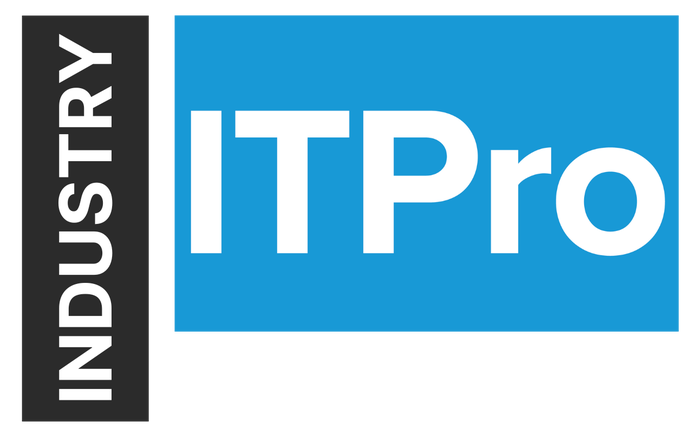
Insight and analysis on the information technology space from industry thought leaders.
Why Investing in Innovation Is Mission-CriticalWhy Investing in Innovation Is Mission-Critical
As the White House's Tech Hubs build the workforce of the future, businesses must be actively advancing their tech innovation initiatives.
February 9, 2024

The White House's recent move to catalyze investment in innovation by designating 31 communities to serve as Regional Innovation and Technology Hubs (Tech Hubs) serves as an important reminder to tech companies that continual modernization is critical to maintaining competitive advantage and positioning themselves to secure new opportunities as they arise.
The Tech Hubs are part of a federal initiative to improve American competitiveness in the global technology sector. Each community can compete for up to $75 million in grants to make transformative investment in the development of technologies, including artificial intelligence and automation. According to the U.S. Economic Development Administration, "the Tech Hubs will build the workforce of the future; enable businesses to start and scale; and deploy and deliver critical and emerging technologies."
While digital transformation has become a no-brainer for most organizations, it's taken on newfound importance as they manage the ever-changing environment. There's a plethora of benefits to garner from advancing tech initiatives, and there are proven best practices to keep pace with innovation and ensure smooth, successful transformations. Here's a closer look.
Embrace Emerging Technologies Amidst Change to Enhance Operations
More than half of the companies surveyed (55%) in McKinsey's 2023 survey on the state of AI are using AI in at least one area of their business, and 60% of those organizations are leveraging generative AI. Forty percent of the survey's respondents said their organizations will increase their investment in AI overall because of advances in generative AI.
AI has become a popular investment choice for good reason, as the emerging technology enhances operations and can save organizations significant time and money. For example, automating mission-critical processes in the back office like invoicing, bill pay, and financial reporting can help to streamline the work so it can be done in less time, with fewer people and fewer human errors.
And by handling the more tedious aspects of these jobs, AI can allow finance professionals to focus on more appealing, strategic work, such as building important relationships and leveraging intuition and creativity to solve problems and pave the way to a more profitable future for their organization. Working in tandem with emerging technologies like AI and machine learning can arm them with real-time data analytics and insights that can be leveraged to make better decisions, enhance efficiency, identify new opportunities, and improve accuracy throughout the organization. Cloud-based automation solutions take the benefits a step further by enabling hybrid work arrangements that make jobs more flexible and more appealing, aiding organizations in their efforts to retain employees and attract new hires.
Keep Pace with the Speed of Innovation
According to The 2023 Insight Intelligent Technology Report, an IDC InfoBrief, 82% of surveyed companies recognize that they must invest in digital transformation or be left behind. Nearly half (49%) say the ability to keep up with technological innovation compared to competitors is one of the greatest threats to their organization over the next 12 months.
Keeping up with the breakneck speed of innovation can be challenging. The constant developments and new technology available can easily overwhelm IT and sidetrack businesses that don't carefully set digital transformation goals and ensure that these align with their business initiatives. To stay on track, leaders need to carefully evaluate their current tech toolkit and identify what they hope to accomplish from innovation, such as more efficient, reliable, and intuitive experiences for employees, before proposing new tech investments.
While leaders may be anxious to reap the impressive benefits of modernization, they must ensure that their teams are ready before deploying new tools and processes. McKinsey's The State of Organizations 2023 report shows that only 5% of surveyed business leaders believe their organization currently has the capabilities it needs to integrate their technology investments into their business, indicating that there's a pressing skills gap standing in their way.
Ignoring these skills gaps can threaten everything from tech implementation to overall business success and employee retention. Addressing them requires leaders to cultivate an adaptive, collaborative culture that embraces change and provides people with ongoing training and development to help them adjust to new ways of working and utilize the tools at their disposal. Upskilling and training should address digital skills, including data analytics, cybersecurity, and programming, as well as soft skills like communication, collaboration, and leadership. Done right, employee development like this helps to ensure people have what it takes to confidently work with technology and reap maximum benefit from it.
Commit to Innovation in the New Year
The rapidly changing technological landscape, including the emergence of newly defined Tech Hubs that are well-positioned to become global leaders, makes it increasingly important for organizations to advance their innovation initiatives, and those who follow suit will also likely find success in 2024.
Manu Sood is Senior Vice President of Platform Delivery & Operations at AvidXchange.
About the Author
You May Also Like






.jpg?width=700&auto=webp&quality=80&disable=upscale)
